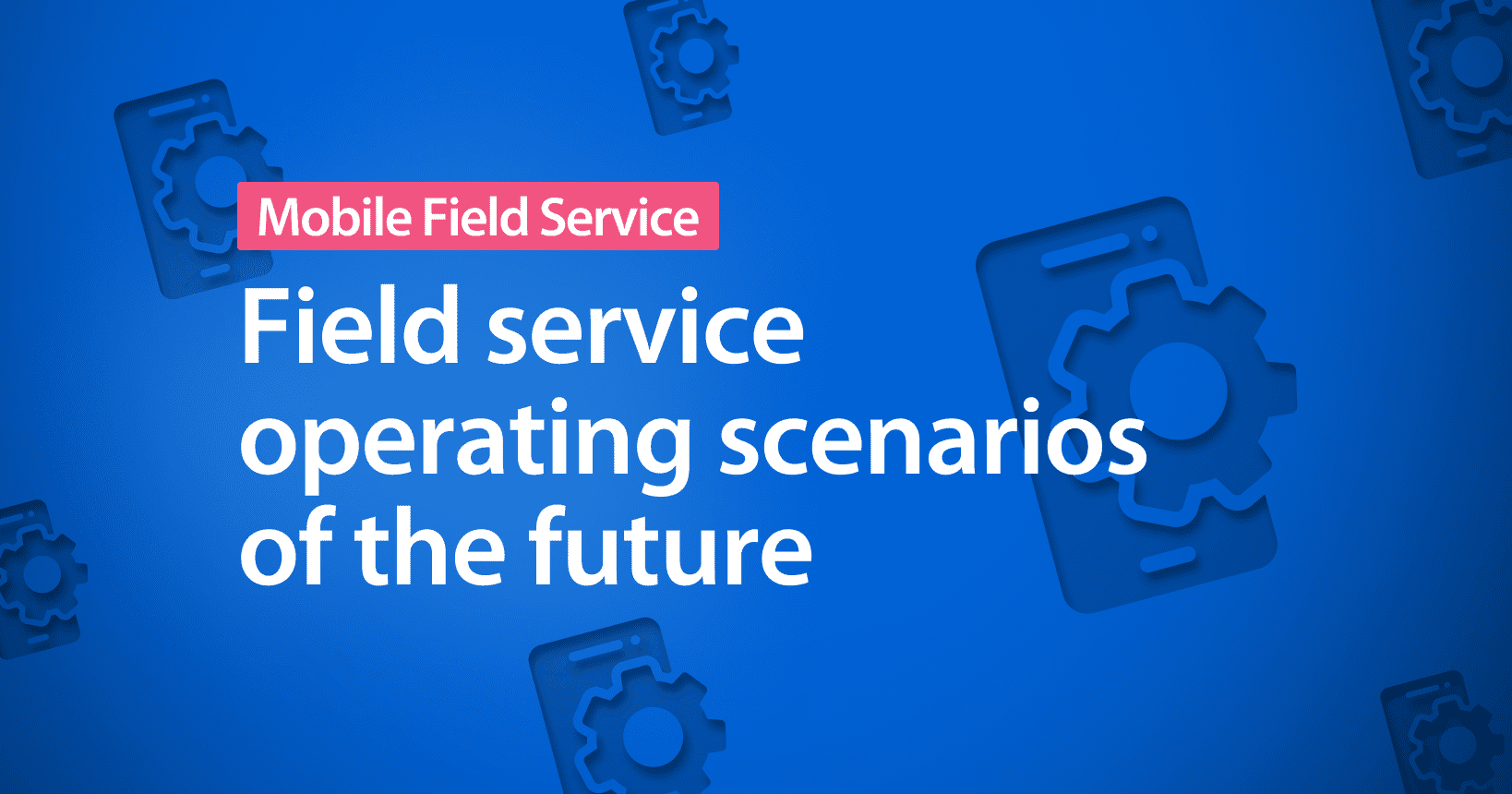In its Future of Field Service Management report, analysts from Gartner have outlined 4 operating scenarios that are expected to dominate the upcoming 5 years. Let’s take a look at considerations that define them and review each scenario, so you can pinpoint in which direction are your field service operations headed.
Key considerations
For field service companies, two main factors can help to clearly distinguish their operational focus:
- Control & accountability over equipment outcomes
- Service complexity & asset focus
Control & accountability over equipment outcomes
Gartner defines the field service technician as the role that usually performs inspections, installations, maintenance, or repairs on equipment or systems operated by another organization. The job also often requires travel to remote locations. Field service providers are accountable to the quality of those services. However, day-to-day tasks are left to the equipment owner or operator.
In some scenarios, field service providers can drive loyalty by owning responsibility for the overall equipment performance — an outcome. In opposite scenarios, the field service company may interact with a customer as little as once in a lifetime and only reactively. Yet, in both situations, customers will expect a personalized, effortless experience.
Service complexity & asset focus
In some cases, the nature of the service is more appointment-focused while in others it is more asset-focused. In appointment-centric use scenarios, optimizing scheduling to minimize travel time and improve communication with customers remain essential.
On the other hand, in asset-focused scenarios the field service provider’s knowledge and interaction with equipment is key. Additionally, due to high levels of equipment complexity, the ability for technicians to collaborate and efficiently share knowledge has become increasingly valuable for these use cases.
Defining the 4 major scenarios
By evaluating the importance and relevance of each of the two factors above, you can determine where a field service provider stands in one of the four operating scenarios categories:

Appointment-centric operations
In this category, organizations offer services that are largely similar from job to job, so they mostly seek consistency and simplicity in order to scale. They often cover wide geographical areas, so they make heavy use of third-party subcontractors. They are expected to arrive at specific times so they can have personal interactions. Workers each receive the same training, so there is low skills variability between workers.
Companies running appointment centric operations require flexible scheduling tools. Their field staff need efficient guidance, approvals, and oversight in order to carry the brand promise. Onboarding is also more frequent due to the nature of employing subcontractors. One of the main challenges of these field service companies is also to predict things that will impact the daily schedule – such as job overruns, missing parts and last-minutes cancellations.
Knowledge-centric operations
A knowledge-centric field service provider’s technician will often service a massive number of customers that are using the same equipment model. However, they require a specialized knowledge and need to learn the customer’s configuration to react quickly to issues. These organizations utilize mostly internal employees for field service.
Many requests come in reactively, making it difficult to forecast requirements and increasing risk of staff overload. Customers also seek control – they want to have the ability to initiate, change and cancel service activities. That should also help experts spend less time on mundane tasks (like collecting model number information and other general information) and provide space to focus on the customers’ specifics.
Equipment-centric operations
Equipment-centric organizations have technicians with deep skills, certifications and experience on specific equipment and components. They provide reactive service in cases of emergency but also look to package one-size-fits-all maintenance procedures that can be delivered consistently. An equipment-centric technician needs many years of experience to become an expert.
With fewer experts available due to retirements and increasing complexity, it is difficult for the new junior field technicians to find experts to help them, even when they exist in the company. Furthermore, collaborating with an expert can be difficult because of distance, issues with understanding jargon, and the likelihood that a technician may lack cellular connectivity at a job site. These companies investigate ways to build user-friendly knowledge databases and equip staff with mobile devices to access this information as well as expert assistance.
Outcome-centric operations
Outcome-centric field service providers are often managing work on equipment they own or operate. They are less concerned about things like scope and contract, and more focused on whether decisions to delay maintenance to save on cost will cause equipment outages and downtime.
These field service providers see opportunity to gain loyalty and charge premiums by owning risk associated with an outcome (such as equipment uptime). For that, they require visibility into usage and condition patterns. Companies in this scenario face many of the same challenges as those in the equipment-centric scenario. They are also expected to act proactively, as customers want them to eliminate reactive service and unplanned outages based on an outcome-based contractual relationship.
What next?
If your organization has multiple identities or is interested in entering a new field service operating scenario, consider whether it is moving closer or farther away from its goal quadrant.
Nevertheless, whichever quadrant you find yourself in, Resco Field Service 2.0 provides an all-in-one mobile solution to deal even with the most complex scenarios. Level-up your field service operations and check out the official Resco Field Service 2.0 product page or get in touch with us at fieldservice@resco.net.

